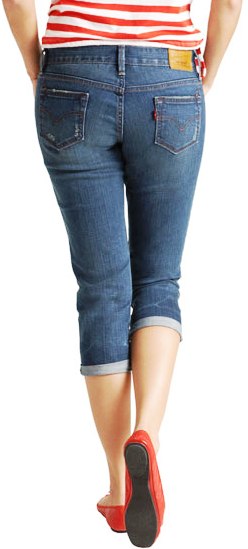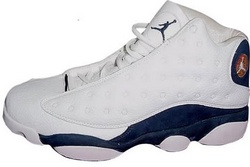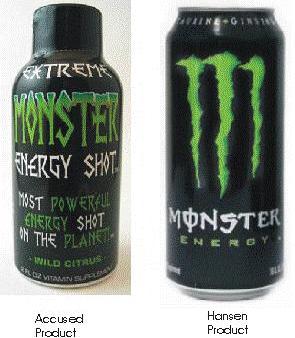Los Angeles, CA – Trademark attorneys for Creative Artists Agency (“CAA”) filed a trademark infringement lawsuit in Federal District Court in Los Angeles against a media/marketing company. CAA is a well known talent agency and has used the registered CAA trademarks for over thirty years. CAA also uses the www.caa.com and www.sports.caa.com as domain names. The trademark, “the logo and the domain names are all used in connection with talent agency services, literary agency services, sponsorship services, marketing and communication services and sports agency services.”
 CAA alleges that the defendants commenced business as CAA-Media in 2003 and “began using the website www.caa-media.com in connection with media buying and media consulting, which is closely related to the services offered by CAA. CAA also continues that defendants “use the designation ‘CAA’ in stylized red lettering, which is nearly identical to CAA’s distinctive mark.” CAA discovered defendant’s use of the allegedly infringing trademark when a CAA employee was informed by a friend that they were hired by defendants CAA-Media. CAA sent a cease and desist letter to defendants which also requested the transfer of the defendants’ CAA domain names. The complaint alleges that instead of ceasing the infringing use, the defendants filed a trademark application with the USPTO for the CAA trademark. The complaint asserts the following causes of action: (1) Federal trademark infringement under 15 U.S.C. § 1114; (2) Federal trade name infringement and false designation of origin under section 43(a) of the Lanham Act, 15 U.S.C. § 1125(a); (3) Federal trademark dilution, 15 U.S.C. § 1125(c); (4) Cyberpiracy under 15 U.S.C. § 1125(d); (5) California common law unfair competition; (6) Unfair competition under Cal. Bus. & Prof. Code § 17200; (7) Injunctive relief; and, (8) Declaratory relief. The case is titled Creative Artists Agency, LLC v. Chessen & Associates, Inc. et al., CV08-02309 SVW (C.D. Cal. 2008).
CAA alleges that the defendants commenced business as CAA-Media in 2003 and “began using the website www.caa-media.com in connection with media buying and media consulting, which is closely related to the services offered by CAA. CAA also continues that defendants “use the designation ‘CAA’ in stylized red lettering, which is nearly identical to CAA’s distinctive mark.” CAA discovered defendant’s use of the allegedly infringing trademark when a CAA employee was informed by a friend that they were hired by defendants CAA-Media. CAA sent a cease and desist letter to defendants which also requested the transfer of the defendants’ CAA domain names. The complaint alleges that instead of ceasing the infringing use, the defendants filed a trademark application with the USPTO for the CAA trademark. The complaint asserts the following causes of action: (1) Federal trademark infringement under 15 U.S.C. § 1114; (2) Federal trade name infringement and false designation of origin under section 43(a) of the Lanham Act, 15 U.S.C. § 1125(a); (3) Federal trademark dilution, 15 U.S.C. § 1125(c); (4) Cyberpiracy under 15 U.S.C. § 1125(d); (5) California common law unfair competition; (6) Unfair competition under Cal. Bus. & Prof. Code § 17200; (7) Injunctive relief; and, (8) Declaratory relief. The case is titled Creative Artists Agency, LLC v. Chessen & Associates, Inc. et al., CV08-02309 SVW (C.D. Cal. 2008).
 Los Angeles Intellectual Property Trademark Attorney Blog
Los Angeles Intellectual Property Trademark Attorney Blog


 Levis alleges that defendant Jeans City manufactures, sources, markets and/or sells “jeans that diplay designs on the rear pockets that are confusingly similar to [Levis’] Arcuate and Tab trademarks.” The complaint alleges that “Jeans City’s actions have caused and will cause [Levis] irreparable harm for which money damages and other remedies are inadequate. Unless Jeans City is restrained by this Court, Jeans City will continue and/or expand the illegal activities alleged in this Complaint and otherwise continue to cause great and irreparable damage and injury to Levis.” Levis claims that it will be harmed by not being able to use and control use of its trademarks, a likelihood of confusion, mistake and deception created in the minds of consumers, false association between Levis and Jeans City, and loss of goodwill. The complaint alleges the following causes of action: (1) Trademark infringement under 15 U.S.C. § 1114; (2) Federal unfair competition, false designation of origin, and false description under section 43(a) of the Lanham Act, 15 U.S.C. § 1125(a); (3) Federal trademark dilution under the Lanham Act section 43(c), 15 U.S.C. § 1125(c); (4) California dilution and trademark infringement under Cal. Bus. & Prof. Code §§ 14320, 14330, 14335, 14340; and, (5) Unfair competition under Cal. Bus. & Prof. Code § 17200. The case is titled Levis Strauss & Co. v. Jeans City USA, Inc., CV08-01639 WHA (N.D. California).
Levis alleges that defendant Jeans City manufactures, sources, markets and/or sells “jeans that diplay designs on the rear pockets that are confusingly similar to [Levis’] Arcuate and Tab trademarks.” The complaint alleges that “Jeans City’s actions have caused and will cause [Levis] irreparable harm for which money damages and other remedies are inadequate. Unless Jeans City is restrained by this Court, Jeans City will continue and/or expand the illegal activities alleged in this Complaint and otherwise continue to cause great and irreparable damage and injury to Levis.” Levis claims that it will be harmed by not being able to use and control use of its trademarks, a likelihood of confusion, mistake and deception created in the minds of consumers, false association between Levis and Jeans City, and loss of goodwill. The complaint alleges the following causes of action: (1) Trademark infringement under 15 U.S.C. § 1114; (2) Federal unfair competition, false designation of origin, and false description under section 43(a) of the Lanham Act, 15 U.S.C. § 1125(a); (3) Federal trademark dilution under the Lanham Act section 43(c), 15 U.S.C. § 1125(c); (4) California dilution and trademark infringement under Cal. Bus. & Prof. Code §§ 14320, 14330, 14335, 14340; and, (5) Unfair competition under Cal. Bus. & Prof. Code § 17200. The case is titled Levis Strauss & Co. v. Jeans City USA, Inc., CV08-01639 WHA (N.D. California).
 Innovage did not wait for Style Asia to disturb its harmonious, Zen like use of its Feng Shui trademark and instituted a lawsuit against Style Asia. Innovate alleges that it, and not Style Asia, was first to use the Feng Shui trademark and despite Style Asia’s trademark registration, Innovage sued for trademark infringement and unfair competition under section 43(a) of the Lanham Act (15 U.S.C. § 1125(a)). The complaint alleges that Style Asia’s use of the Feng Shui trademark “is likely to cause confusion, mistake and deception of the public as to the identity and origin of its own and of Innovage’s goods, causing irreparable harm to Innovage.” The complaint also asserts a California common law unfair competition claim and alleges that Style Asia took advantage of Innovage’s goodwill in the trademark. Innovage also asks the Court to declare that it does not infringe on Style Asia’s trademark and requests the Court order cancellation of the registration at the USPTO. The case is titled Innovage LLC v. Style Asia, Inc., CV08-00310 JVS (Central District California).
Innovage did not wait for Style Asia to disturb its harmonious, Zen like use of its Feng Shui trademark and instituted a lawsuit against Style Asia. Innovate alleges that it, and not Style Asia, was first to use the Feng Shui trademark and despite Style Asia’s trademark registration, Innovage sued for trademark infringement and unfair competition under section 43(a) of the Lanham Act (15 U.S.C. § 1125(a)). The complaint alleges that Style Asia’s use of the Feng Shui trademark “is likely to cause confusion, mistake and deception of the public as to the identity and origin of its own and of Innovage’s goods, causing irreparable harm to Innovage.” The complaint also asserts a California common law unfair competition claim and alleges that Style Asia took advantage of Innovage’s goodwill in the trademark. Innovage also asks the Court to declare that it does not infringe on Style Asia’s trademark and requests the Court order cancellation of the registration at the USPTO. The case is titled Innovage LLC v. Style Asia, Inc., CV08-00310 JVS (Central District California). Defendants also sell an energy product under the trademark of Monster Energy Shot. Hansen alleges that “without permission or authority from Hansen, Defendants have infringed Hansen’s MONSTER Marks in interstate commerce in connection with Defendants’ making, using, promoting, advertising, selling, and/or offering to sell the MONSTER ENERGY SHOT drink.” The complaint also states that, by choosing a similar color scheme on their containers, “Defendants have infringed Hansen’s MONSTER trade dress in interstate commerce in connection with Defendants’ making, using, promoting, advertising, selling, and/or offering to sell its MONSTER ENERGY SHOT energy drink.” The complaint asserts the following causes of action: (1) Trademark infringement 15 U.S.C. §§ 1114; (2) Trademark dilution under the Lanham Act section 43(c), 15 U.S.C. § 1125(c); (3) False designation of origin and trade dress infringement under section 43(a) of the Lanham Act, 15 U.S.C. § 1125(a); (4) California trademark dilution under Cal. Bus. & Prof. Code § 14330; (5) Unfair competition under Cal. Bus. & Prof. Code §§ 17200 and 17500; (6) Common law trademark infringement; (7) Common law trade dress infringement; and, (8) California common law unfair competiton. The case is titled Hansen Beverage Company v. N2G Distributing, Inc., et al., EDCV08-0357 VAP (C.D. California).
Defendants also sell an energy product under the trademark of Monster Energy Shot. Hansen alleges that “without permission or authority from Hansen, Defendants have infringed Hansen’s MONSTER Marks in interstate commerce in connection with Defendants’ making, using, promoting, advertising, selling, and/or offering to sell the MONSTER ENERGY SHOT drink.” The complaint also states that, by choosing a similar color scheme on their containers, “Defendants have infringed Hansen’s MONSTER trade dress in interstate commerce in connection with Defendants’ making, using, promoting, advertising, selling, and/or offering to sell its MONSTER ENERGY SHOT energy drink.” The complaint asserts the following causes of action: (1) Trademark infringement 15 U.S.C. §§ 1114; (2) Trademark dilution under the Lanham Act section 43(c), 15 U.S.C. § 1125(c); (3) False designation of origin and trade dress infringement under section 43(a) of the Lanham Act, 15 U.S.C. § 1125(a); (4) California trademark dilution under Cal. Bus. & Prof. Code § 14330; (5) Unfair competition under Cal. Bus. & Prof. Code §§ 17200 and 17500; (6) Common law trademark infringement; (7) Common law trade dress infringement; and, (8) California common law unfair competiton. The case is titled Hansen Beverage Company v. N2G Distributing, Inc., et al., EDCV08-0357 VAP (C.D. California).